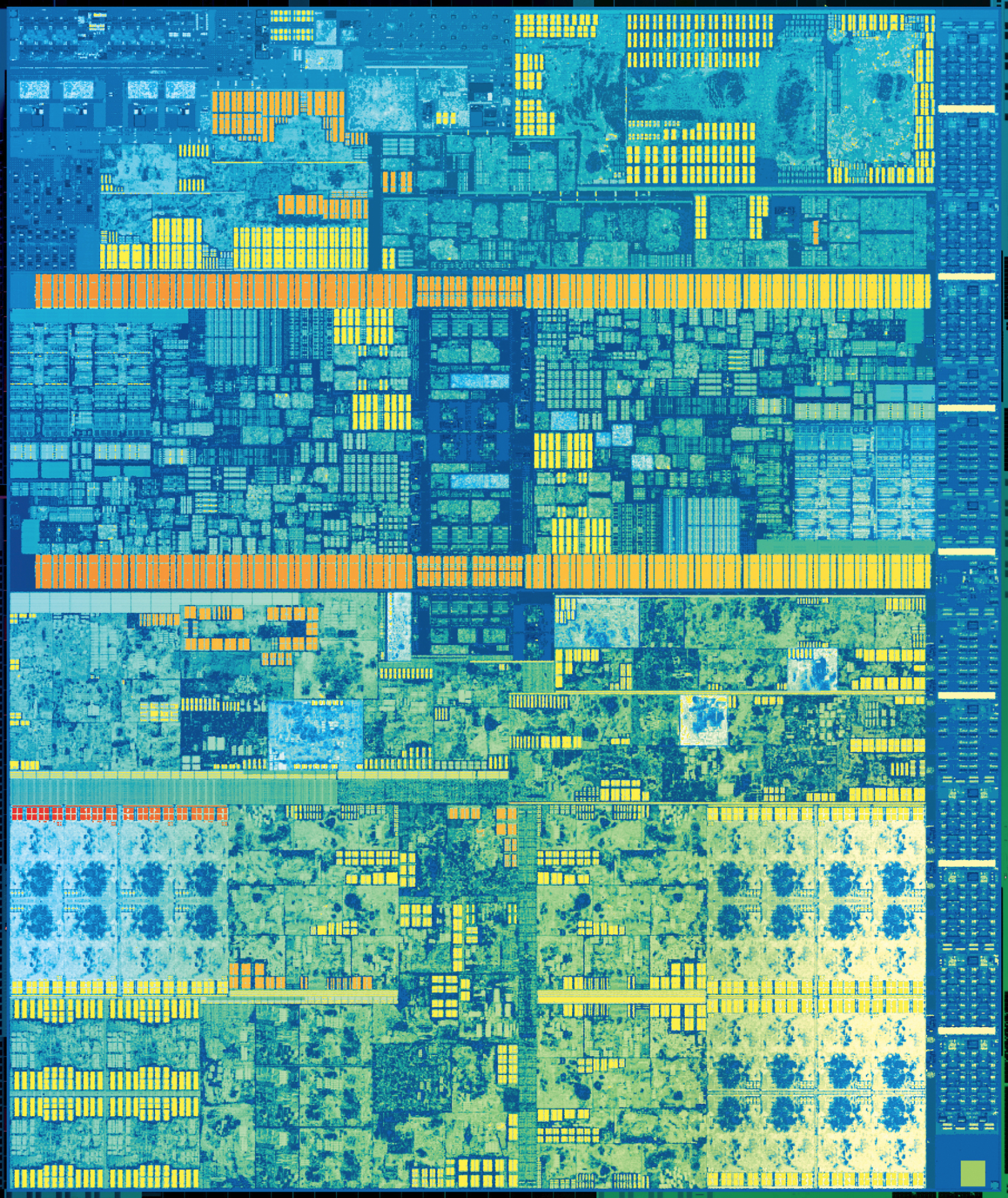Intel Reveals 10nm+ Ice Lake Processors With Precious Few Details
Intel listed the Ice Lake family in its processors and chipsets section on its website, but the listing is short on meaningful details.
Here's everything Intel said about the new processors:
"The Ice Lake processor family is a successor to the 8th generation Intel Core processor family. These processors utilize Intel’s industry-leading 10nm+ process technology."
Intel notes that the new processor family will feature the 10nm+ process, which isn't surprising, but also said that it will be a successor to the 8th generation Intel Core processor family. Most important, Intel notes that the processors are "a" successor to the eighth-generation products, not "the" successor.
The eighth-generation chips, more commonly known as Coffee Lake, are coming to market soon. Coffee Lake is largely seen as a response to the resurgent AMD Ryzen processors, but truth be told, we've heard rumors of the new lineup since 2006. So, while they are a needed response to AMD that will bring more cores to the mainstream desktop, it's hard to characterize them as a knee-jerk reaction.
Intel is going to announce the new 8th Generation Coffee Lake processors, built on the 14nm++ process, on August 21 during the eclipse. The eighth-generation products are indicative of Intel's new switch to extended 'optimization' periods with each process node, which finds the company deploying three iterations of its process as it continues to extend Moore's Law (such as the 14nm, 14nm+ and 14nm++ generations).
Ice Lake will feature the 10nm+ process, but that leaves the first 10nm step on the ladder open. The Cannon Lake processors will feature the first iteration of the 10nm process, so they will also be "a" successor to the eighth-generation processors.
Get Tom's Hardware's best news and in-depth reviews, straight to your inbox.
This same three-step strategy will carry over to Intel's 10nm process, too, but Intel also announced earlier this year during its manufacturing day that new processors could feature multiple components with different process nodes. That tactic leverages economies of scale and other benefits of existing processes to construct some components, such as the uncore, with older, more established nodes. This means that while Ice Lake will have 10nm+ technology, it might also feature other components constructed with different lithographies.
Intel also touted its new 'Data Center First" strategy during its manufacturing day. The company will slowly transition from its traditional practice of debuting new processes and architectures with mainstream processors, instead opting to bring the new designs to the data center lineup first. Where Ice Lake fits into this remains unknown, as are most of the details surrounding Ice Lake.
In either case, it's possible that Ice Lake is coming to the data center first, and to the desktop later. That could explain the odd non-announcement/pre-announcement of the second successor to its eighth-generation processors.

Paul Alcorn is the Editor-in-Chief for Tom's Hardware US. He also writes news and reviews on CPUs, storage, and enterprise hardware.
-
robax91 So we're finally here. 10nm. With the trickle effect being permanent, it wouldn't surprise me if they weren't already working on 8nm tbh.Reply -
Lazovski So where has Cannonlake gone to ?..Reply
"And (W)inte(r)l gave Spring and Summer a miss and went straight on into Autumn." -
Malik 722 but ice lake i think won't happen till the end of 2018 but any way seeing the technology move like this really make me happy.Reply -
none12345 "So we're finally here."Reply
Not really... Coffee lake isnt out yet, let alone cannon lake, let alone ice lake. Tho cannon lake for mobile is suppose to be the first 10nm not ice lake.
Its more like they are finally getting close....but still haven't arrived at 10nm. 10nm is what 1.5 years late now, should be 2ish years late by the time it debouches for mobile chips(longer for desktop chips)
And yes, they are certainly working on 7nm already. And they are also likely working on 5nm as well. These things take a LONG time to develop, the industry starts working on the next 2 processes before the current one is finished. -
bloodroses 7nm sounds like it will be it for a while until fundamental changes occur in chip design:Reply
https://en.wikipedia.org/wiki/5_nanometer
Looks like Intel will only have one more die shrink to go after ice lake; then it'll be a waiting game. -
HEXiT if that die pic is accurate, it looks to be a quad with gpu (630ish) and more pci-e lanes.(im guessing possibly 24?)Reply -
JamesSneed I knew Intel was sitting on 10nm and IceLake waiting for competition, miking the current 14nm designs. The likely made many billions more so I don't blame them. We can thank AMD for the timing of this otherwise they would still be tweaking there 14nm parts next year.Reply -
zippyzion @JamessneedReply
Really? Because all the articles that I've read have cited difficulty with the 10nm fab process. Did you know that Kaby Lake was supposed to be 10nm?
https://arstechnica.com/gadgets/2015/07/intel-confirms-tick-tock-shattering-kaby-lake-processor-as-moores-law-falters/
They had similar difficulty going from 22nm to 14nm as well. It seems that shrinking and packing transistors is a pretty hard thing to do. So much so that even Intel with its massive R&D team has had problems... errr sorry, difficulties. Intel never said problems, only difficulties.
